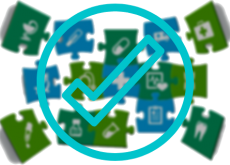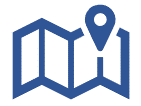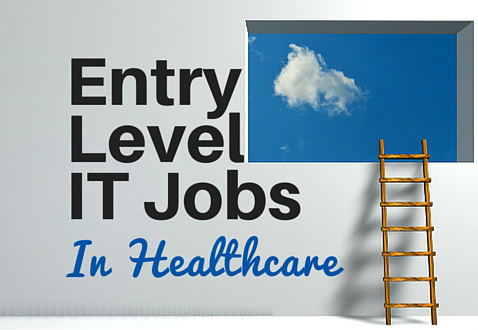Life is too short to spend on a job that you either hate, or one that doesn’t give you the sense that you’re doing something to make the world a little better. That’s why I feel so blessed to have built my career in healthcare information technology. After a few unfulfilling jobs in my 20’s, I got my first break in healthcare IT in 1995. It’s very often that I reflect on that as one of the best choices I’ve ever made. Of course, every workplace has its challenging situations and people, but if I could have a do-over I don’t think I could have chosen a much better option considering my background and personality. Well, except for rock guitarist, but I never got good enough to realistically make a living at that.
So if you’re struggling to find your place, or if you are in another segment of technology, let’s look at some of the benefits of working in healthcare IT.
There Is Room For All Kinds Of Skills And Personalities

An important aspect of career and personal development is having a good understanding of your own traits, preferences, and habits. Do you thrive on personal interactions and processes? Then you might make a good project manager. Are you more of a task-oriented “heads down” worker? You could do well as a systems analyst or doing medical device support.
You are probably either more of a “generalist”, or the type who thrives on working with complex processes and problems. Either way, there are dozens of paths to a great career in Healthcare IT. You can be as specific or as general as you want.
A great example of how specific this gets can be seen with interface analysts. Interfaces in healthcare are technical components that allow different technology platforms to share clinical data with each other. For example, a lab system needs to send results to an electronic health records system, but that lab system is built with different technology than the EHR. Both systems use a common standard called Health Level Seven (HL7). This standard has rules that all vendors comply with in order to share data. An interface analyst can spend their entire career working just with HL7 and interfaces.
For The Most Part, Healthcare IT Workers Aren’t Driven By Egos

A lot of people who work in healthcare IT could make more money at large tech companies, but find a sense of purpose in supporting the clinicians who deliver care to all of us. We’re always aware that these clinicians depend on us to build and maintain systems that help them to provide the best care possible and comply with all kinds of government and hospital regulations. We all carry a high level of accountability to be sure that the work we do helps our customers and protects patients. A misplaced decimal point in banking can cause a disastrous financial transaction; but the same misplaced decimal in healthcare can kill patients.
Mostly Resistant To Economic Downturns

In the summer of 2000, the dot-com bubble was at its peak. The economy was red-hot, and I was working for an EMR vendor in downtown Seattle. There were lots of internet companies hiring, so I took the leap and joined one just a mile or so from where I worked. It lasted about seven months. Heading into winter, the bottom began to fall out of the tech industry and for the first time in my life, I got laid off. I also had a wedding planned for the following summer, so it was a stressful time.
At first, I didn’t think I wanted to get back into healthcare, so I tried applying for all kinds of jobs in consulting, banking, and other IT sectors. After a few months of no job offers, my previous employer started looking pretty good. There was an open position doing just about the same thing I had done before- working with HL7 interfaces. They hired me back at a higher salary than when I had left, and I jumped right back in. Then 9/11 happened and the economy continued to tank. Although my company was affected, we were still in decent shape. We rode out the storm, and I stayed in that position for another seven years.
There’s Not Much Age Discrimination

During my short stint at that e-commerce company in 2000, I didn’t see many people over age 40, and the ones that I did work with didn’t seem to connect well with some of the younger workers and weren’t always taken seriously.
In the Healthcare IT space, I’ve seen lots of people in their 50’s and 60’s who have been able to take on new roles, learn new skills, and even move to different organizations. In fact, the U.S. Department of Labor has expressed concern about the overall age of healthcare workers. The average age of an RN in the U.S. is 50. If anything, we need more younger people to join the healthcare IT workforce for the foreseeable future.
You Get To Experiment

As a young kid, I was the one who took things apart to see how they worked. As an applications analyst, I have times where I can play in the sandbox to see what I can come up with. The methods change depending on what technology you’re working with. In a past position, I used a rules-based decision support product to change the way screens flowed into each other on a clinical application. I enjoyed hearing what users didn’t like about the system, and coming up with ways to make the software work better for them. Today, I work mostly in Epic. Among other things, I get to build clinical components that pull in data from various sources to present a complete picture to clinicians who use the system.
Yes, Healthcare IT Really Is Helping Patients

If you’ve been around technology for any amount of time, you know that it generally creates about as many problems as it solves. I would be dishonest to say that Healthcare IT has no drawbacks or shortcomings. You can read about some of them here. However, there are lots of areas where electronic records and data analytics are having a real impact on patient outcomes. Electronic Health Records systems are helping to reduce hospital readmissions, helping to manage chronic diseases, and identifying ways to predict and improve disease outcomes.

Read More
Skills You Can Take Anywhere

Over half of hospitals in the U.S. use technology from either Cerner, Epic, or MEDITECH. While I’m not a fan of oligopoly markets, this has created an easy path for technology workers who have these specific vendor skills. In 2015, I moved my family from Seattle to Raleigh in search of better weather and a lower cost of living. Because I had been working as an Epic analyst at a hospital near Seattle for the previous seven years, I was easily able to find a similar position at a hospital in the Raleigh area. On a personal level the cross-country move was just as disruptive as you may think. I had all the adjustments that come with a big change- a different culture, finding my way around, and getting settled. It was a great comfort to go to work every day and see the same familiar processes, technical tools, and applications. Even the department structure of my new job was pretty much the same as my previous one. It was like I took my job with me.
Next Step: Learn about healthcare IT certifications and entry level jobs



